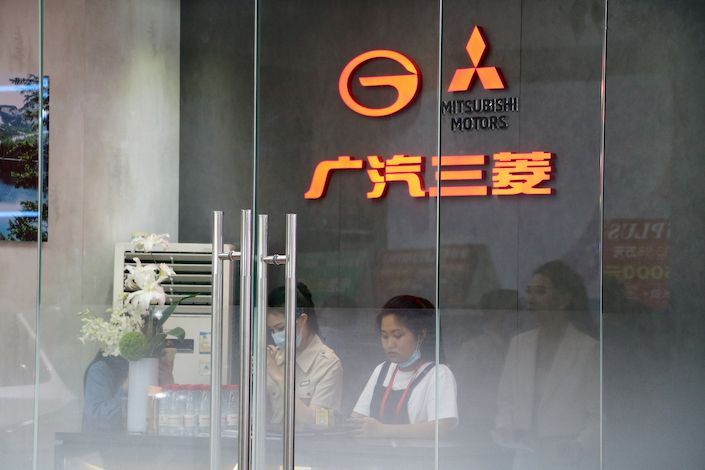Mitsubishi Pulls China Auto Production Amid EV Competition

The Lede: According to a report from Nikkei on Wednesday, Japan’s Mitsubishi Motors has decided to withdraw its automobile production operations in China amid the increasing demand for electric vehicles in the country and rising popularity of local car brands.
What We Know:
- Mitsubishi has no proprietary EVs in the China market and follows the decline in sales of other Japanese automakers such as Honda, Nissan, and Toyota in recent years as EV market leaders Tesla and BYD seized market share along with other Chinese manufacturers such as Nio and Xpeng.
- Mitsubishi plans to pivot its focus to EVs and hybrids in Southeast Asia and Oceania. These regions account for about a third of Mitsubishi's consolidated sales.
- On Thursday, Mitsubishi’s shares rose 5% from Wednesday's close on the Tokyo Stock Exchange
The Background: Based in Hunan, GAC Mitsubishi Motors is the Japanese firm’s only factory in China. The company stopped production in March and has no plans to resume operations. A company memo that appeared on Chinese social media in July said sales had fallen far below expectations in a market rapidly shifting to electric vehicles. Data from the China Association of Automobile Manufacturers shows that EV sales in the country increased by 80% to 5.36 million cars in 2022. This makes up around 20% of all new car sales in China. Chinese brands accounted for 50.7% of passenger car sales last year according to research firm MarkLines.
Likely Outcomes:
- This decision comes just a couple of weeks after the EU Commission announced that it would be launching a probe into Chinese state subsidies for electric vehicles, which they argue have unfairly undercut their car brands with artificially low prices. Rather than fight the subsidization of Chinese car brands in China, Japanese car manufacturers are feeling the pain of the country’s race to the bottom for car prices and may follow Mitsubishi’s example and exit the market.
- The ‘de-risking’ path of the developed Western sphere is also likely a factor in this decision. Along with the market conditions in China, the regulatory and geopolitical hassle that has emerged, especially in the automotive industry, has likely made doing business in China far more trouble than any foreseeable upside. As the competition over EVs and the green transition remains heated between China and the West, there may be a development of entirely separate auto industries in each camp.
- The shift in focus away from China toward Southeast Asia has been an emerging path as other companies such as Apple have shifted supply chains in that direction. U.S. President Joe Biden’s recent visit to Vietnam to shore up ties and pave the way for economic cooperation illustrate the political angle to this pivot.
Quotables:
"Mitsubishi took the initiative by withdrawing from a difficult market…we may see other midsize automakers following Mitsubishi.” – Seiji Sugiura, senior analyst at the Tokai Tokyo Research Institute
"There were no guarantees that we could turn a profit in a market as competitive as China. We might have worsened the bleeding by trying." – a Mitsubishi executive
"We are not at a level where we can make a profit due to extremely heavy discounting. We are considering our options, including reviewing our strategy such as our joint ventures in China." – Makoto Uchida, president and CEO of Nissan Motor
"The profit level for the automobile industry this year will fall to the 4% level, below the normal level of 6% to 7%. Many automakers cannot invest sufficient funds in research and development. A new round of reductions to manufacturers' suggested prices has begun." – Chen Shihua, deputy secretary-general of the China Association of Automobile Manufacturers
Good Reads:
China EV price wars drive Mitsubishi from market (Nikkei)
Japan's Mitsubishi Motors to end production in China (Nikkei)
Mitsubishi Motors planning to end production in China (Japan Times)
